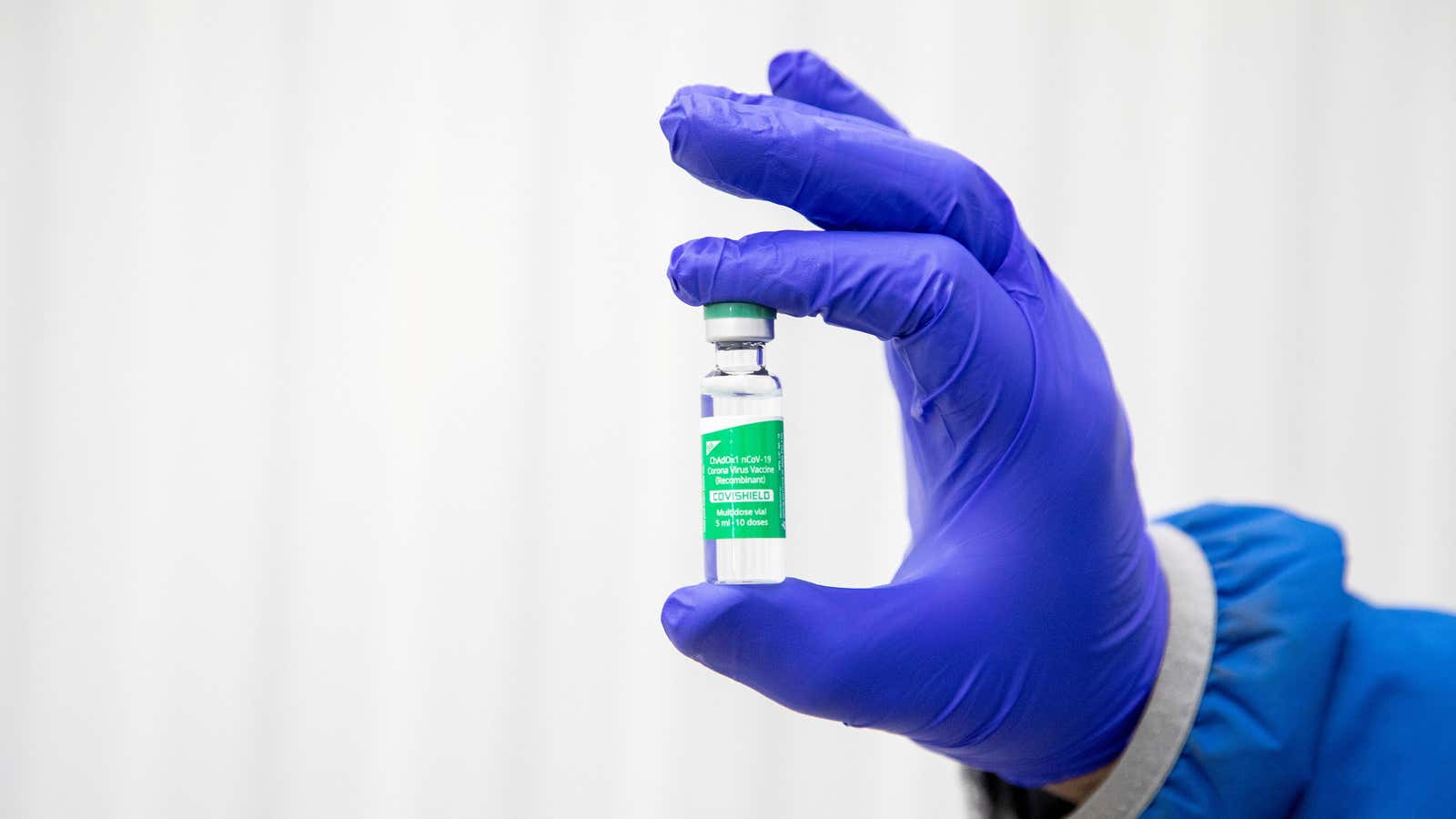On the same day that India announced its decision to open up its vaccine drive for everyone over the age of 18 from May 1, a young Maharashtrian posted a picture of getting his second dose.
It didn’t help that Tanmay Fadnavis looked nowhere near 45, the current age bar for getting a Covid-19 vaccine in India. It also didn’t help that he is related to the former Maharashtra chief minister, Devendra Fadnavis. The young Fadnavis allegedly got the second dose of his vaccine and posted a picture of it on his public Instagram account. He later deleted his post.
Fadnavis may have slipped up in bragging about his vaccination publicly, but he is in no way the only Indian to have skipped the queue. In New Delhi’s politically charged networks, many people below the age of 45 have received at least one dose of the vaccine. “All of my cousins are fully vaccinated, and some of my staff has gotten the first dose,” says an old Delhi-based trader who did not want to be named. “My family is politically well connected,” says the 32-year-old like it’s a no-brainer.
Currently, the official channel to get vaccinated is through India’s Cowin digital platform, which only accepts a registration if one meets the age criteria. Once legitimately vaccinated, beneficiaries are eligible to receive a QR-coded vaccine certificate. “I knew a hospital owner in Delhi, and they told me the vaccine certificate would be made available once it opens up for my age group,” says a 31-year-old financial consultant in the city.
He feels lucky that he at least didn’t have to pay Rs5,000 through some local political organisations. “If you know the right people, it’s really not that hard to get the vaccine, trust me,” he says.
Others like him have benefitted from the age-old system of jugaad, a powerful system of the right connections, nifty tricks, and a little creativity, while average Indians have been waiting their turn.
Vaccines for all by bending the rules
In several cities, average citizens were being registered as frontline workers to be eligible to receive the vaccine. “My father got vaccinated at a private hospital in Lucknow, but my mother was not eligible at the time,” says a local resident. Before April 1, those between the ages of 45 and 59 needed to have specified co-morbidities to qualify for the vaccine. The Lucknow resident’s 52-year-old mother had none, but the hospital was willing to allow some leeway.
“We paid Rs500 instead of Rs250 per shot, and her certificate reads ‘FLW’” she says. It wasn’t until much later that she realised that the hospital had bent the rules, registered her mother as a frontline worker, and made a little extra money out of the deal.
The government admitted to the prevalence of this problem when it stopped registering new healthcare and frontline workers on April 3. During India’s second phase of the vaccination for its elderly, the registration of healthcare workers went up by 24%, according to a letter that health secretary Rajesh Bhushan wrote to Indian states.
Several of these out-of-turn vaccinations likely also came from the “wastage” that was being reported by many states. Across India, the government had reported on March 18 an average of 6.5% doses of vaccines that went to waste.
Then there were places like the Indian Institute of Technology in Gandhinagar that allegedly immunised 900 of its faculty and staff out of turn, even as the country was facing a grim vaccine shortage for those who were legitimately eligible.
In other parts of the country, primary health centres (PHCs) seemed to have modified the rules on their own.
Covid-19 vaccines openly for those above 18
In the southern city of Chennai, some PHCs were using their discretion to allow those younger than 45 to get vaccinated, The News Minute reported. Several people in different pockets of the state took a chance and walked up to the PHCs to try their luck—and did indeed get lucky.
It is likely that this step, much like in the US, was taken to cut down on the wastage. The vaccines come in vials of 10 and 20 doses, and smaller PHCs often do not have enough people coming forward for the vaccine. But there was no official guidance on how to manage this dose surplus and who to redirect it to.
There were also reports of actors and journalists receiving the Covid-19 vaccines, even though they were not yet eligible, The New Indian Express had reported. But this special treatment aside, many centres in the city of Coimbatore were openly vaccinating young people, with no special documentation, jugaad, or even bribes.
“All of my friends are vaccinated, none of them paid a dime extra to the hospital,” says a 23-year-old, Coimbatore-based designer. “This is the first I’m hearing from you that we’re not eligible to receive the vaccine. I thought all of us in the state can get it because the government here allowed it,” he says.
Currently, the central government controls and disburses the stock of the vaccines to the states, and dictates the eligibility criteria.
